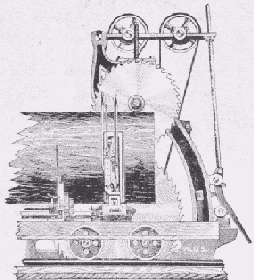PBS Special: Civilization – The West and the Rest
I heartily recommend the PBS special: “Civilization: The West and the Rest,” which does a fine job in analyzing the six “killer apps” that resulted in the dominance of the Western culture over the remainder of the world. They are: political and economic competition, development of science, ownership of property, modern medicine, consumerism, and work ethic.
But while the show was brilliantly crafted and extremely thought provoking, I found it lacking in an important way. There is no doubt that these are the ingredients that made Western Civilization what it has become over the last 500 years or so — ingredients that have resulted in our easier, longer, and healthier lives. But are they a prescription for success in the future? The show boldly asserted this, but is it true?
In particular, it seems to me that consumerism and some of the other killer apps that have been integral to the fantastic economic growth have hit the wall in terms of their ability to improve our lives. At this point, it appears that these factors have begun to cause the implosion of our civilization, rather than its enhancement. Put another way, perhaps this vast economic engine of coveting, purchasing, using, and discarding has run headlong into a buzzsaw: sustainability.
Here’s a short list of challenges facing our world, each the result, directly or indirectly, of our competitive, consumer-based society.
• Global climate change / extreme weather events
• Erosion of the middle class, public education, and the resultant weakening of democracy
• Rising influence of mega-corporations in our lives
• Eco-devastation, extinction of species, reduction in biodiversity, deforestation, desertification, ocean acidification, etc.
• Water shortages
• Food shortages, and the declining nutritional value of that which remains
• Externalities of oil, including the use of the military to maintain access to it
• Loss of liberties / social injustice
• Runaway population growth
• Skyrocketing rates of disease resulting from fossil fuels and toxic chemicals
To put it simply: What was good for us in the past is not necessarily good for us in the future.
I’m reminded of the financial consultants who urge their clients to ignore the stock market’s peaks and valleys, as they point out that over the last 100 years, the market has appreciated many hundred percent. True (though I don’t need a consultant to tell me what happened over the last 100 years). But is this a prediction for the next 100 years? Not in my book.



I saw the PBS program. The author approached his subject from a patently anti-Western bias.
That’s funny; I thought the opposite. The theme was, of course, that these six “killer apps” had resulted in Western domination of the world, which is precisely what has happened over the past 500 years.
As I mentioned, however, it strikes me as unwise to predict that the future will be an extension of the past — especially now that so many elements of our culture appear to be at or near tipping points.
Craig,
I share your regard for the 2-part PBS special you mention. It was outstanding, as is your response.
Thank you for once again bringing your perspective to light. If we are to chart a course to a survivable future, humanity must first aggregate a critical mass of intention to do so. Inasmuch, it is essential to dispense reliable information upon which to affect the formation of accurate perspectives – the seeds of an appropriate collective intention.
A precept of success often associated with goal-setting is that of ‘beginning with the end in mind.’ We must fully engage our active awareness and consideration of the destination towards which our course heading will lead. We must be willing to ponder disconcerting issues, discern their present and long-term significance, formulate solutions, and commit to their resolution.
Einstein is credited with having said: “One cannot solve problems with the same level of thinking that went into their creation.” This alludes to the need for a greater perspective on our problems. You have continually ‘raised the bar’ towards this end.
Your writing consistently lends itself to clarifying issues of core relevance to our future. The convictions of your readers may, in hindsight, determine whether your efforts will have characterized you as a purveyor of hope or a harbinger of unimaginable hardships to come. Whatever eventually comes of it, you continue to do a great service to all life on this planet by periodically reminding the stewards of that life of what is at stake.
In short, your choice to carry this torch has nurtured my respect and admiration for you. It is well-deserved.
We are indeed fortunate to have with us a gifted champion for the ethos of a higher age such as Craig.
Thanks; I’m quite flattered. Btw, I look at the entire 2GE community (large and growing steadily) as champions for such an age. I think we all want civilization to get there, even though we’re sometimes divided on the means to that end.
I felt a deep let down at the end. I thought it was naive to assume our civilazation is safe for the future.
All else was brilliant.
Exactly. They had the perfect opportunity, and I would argue the obligation, to point out that the magnificent thing called Western civilization is headed for disaster.